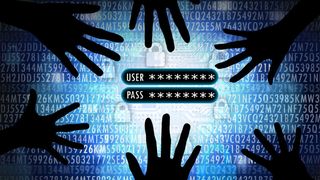Senior management’s password practices are ‘shocking’, experts say.

(Image credit: Image source: Shutterstock/Ai825)
Senior management’s password practices are “shocking”, a new report from identity and access management firm OneLogin claims.
Polling 2,000 remote workers in the UK and the US on cybersecurity practices in the workplace, the company found that senior management was a significantly bigger cybersecurity risk, compared to junior staff members.
For example, senior staff are twice as likely to share a work device with someone outside their organization. They are also more likely to share confidential passwords with family members and work via public, unprotected Wi-Fi.
The problem has been made worse by widespread remote working, which is thought to substantially increase the risk of cyberattacks, such as malware or ransomware, as well as data theft incidents. Lacking an IT team on hand, missing a secure local network and state-of-the-art cybersecurity solutions, remote workers have become prime targets for criminals.
Experts are warning that using the same device for both work and private activities, as well as sharing devices with other members of the household (which may not have the same level of cyber-awareness) could put organizations at risk.
“These survey results paint an illuminating picture of security posture in a remote working environment”, said Brad Brooks, CEO of OneLogin.
“The effects of the pandemic mean that virtually all organizations are now operating, to some degree, outside of the controlled and protected office environment. That is, without the corporate-grade firewalls and on-site IT people we all once relied on for protection.”
“It has never been more important for employees to take personal responsibility for their own security posture. Understanding the sanctity of their corporate passwords and devices, and the potential dangers of working on an unsecure Wi-Fi network should be top priorities for all remote workers.”
Resource: ITproportal